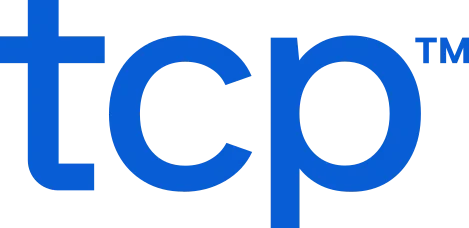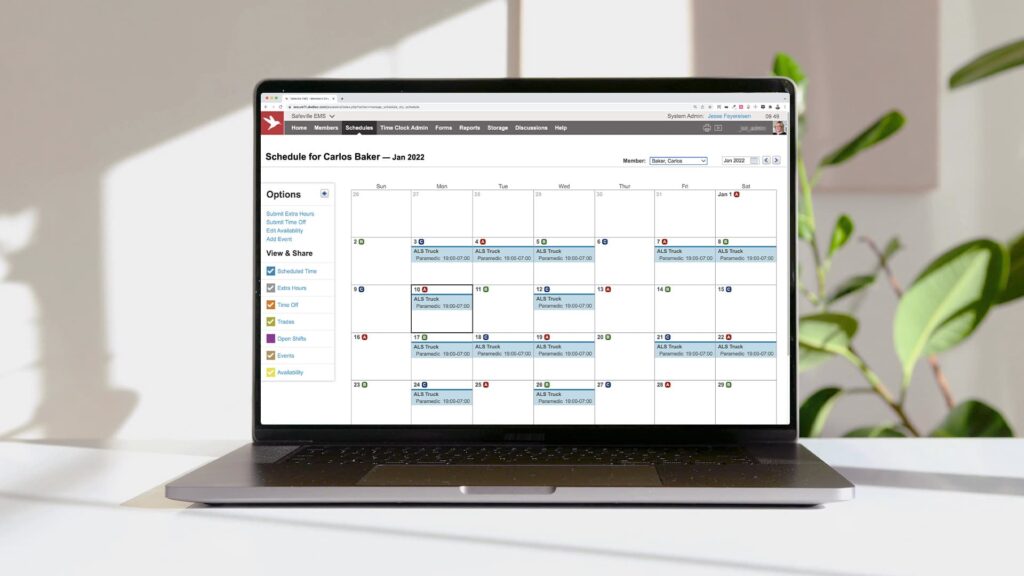Hiring minors can be a smart way to fill part-time or seasonal roles, especially in retail, food service, hospitality, and other high-turnover industries. But it comes with a unique set of legal obligations.
Teen workers help fill staffing gaps and often bring energy, flexibility, and a willingness to learn. But hiring minors isn’t as simple as putting them on the schedule. One misstep — scheduling a 15-year-old past curfew or assigning a 16-year-old to operate restricted equipment — can lead to fines, audits, or worse.
This guide breaks down federal and state employment rules for minors and child labor, highlights common compliance pitfalls in working with minors, and explains how employee scheduling software can help you stay in the clear.
Quick overview: What are child labor laws and employment rules for minors?
Child labor laws exist to protect minors from work that’s dangerous or disruptive to their education and quality of life. These rules draw clear lines on what kinds of jobs minors can do, how many hours they can work, and when. (Minors include those under the age of 18.)
At the federal level, employment rules for minors fall under the Fair Labor Standards Act (FLSA), which defines:
- Minimum age requirements
- Hourly restrictions based on age and school calendar
- Hazardous job classifications
- Youth wage provisions
States often add their own rules, which means you need to follow whichever law (state or federal) is more protective of the minor.
Who do child labor laws apply to?
Generally, employment rules for minors apply to any business employing minors under 18 in non-agricultural jobs. The FLSA sets the baseline, but employers must also account for more restrictive state rules when applicable for teenage worker laws.
What jobs can minors do, and when?
Here’s how the FLSA breaks down the employment rules for minors by age:
Under 14
Children under 14 can’t be hired for most jobs. The only legal exceptions are casual roles like babysitting, delivering newspapers, or performing in entertainment.
Ages 14–15
Teens aged 14 and 15 can work limited hours outside of school in non-hazardous roles. During the school year, they’re allowed up to 3 hours on a school day and 18 hours per week. When school’s out, they can work up to 8 hours per day and 40 hours per week — but never during school hours.
Ages 16–17
The hour restrictions are lifted at 16, but hazardous occupations are still off-limits. That includes operating heavy machinery, driving vehicles, or working from heights.
What about the youth minimum wage?
There’s a lesser-known rule about youth wages that trips up a lot of employers: you can legally pay workers under 20 a reduced wage of $4.25/hour — but only if you follow two very specific conditions:
- Only for the first 90 calendar days of employment
- Only if it doesn’t displace another worker
So, where do organizations slip up with employment rules for minors?
Common child labor violations
Most child labor violations aren’t malicious; they’re honest mistakes. But that doesn’t make them any less risky. The most common missteps in employment rules for minors include:
- Scheduling minors for more hours than legally allowed
- Allowing them to work too late on school nights
- Assigning them to use prohibited equipment (e.g., fryers, box crushers, power tools)
- Missing required work permits or parental consent forms
- Not adjusting scheduling rules after a birthday (e.g., turning 16)
These violations are particularly common in restaurants, grocery stores, amusement parks, and retail scheduling. Businesses in these sectors often hire teens seasonally or in large numbers, making time tracking and scheduling a risky move when so much of your labor is in flux.
Consequences of child labor violations
The penalties for violating employment rules for minors can be steep. Under the FLSA, employers may be fined up to $16,035 per minor for each violation. If the violation leads to serious injury or death, the fine can increase to $72,876 (and double under a repeated/willful violation).
State-level agencies may also impose their own penalties, which can stack on top of federal ones. Beyond fines, noncompliance can damage your employer brand and raise concerns about broader HR practices.
In short, compliance with youth labor laws isn’t something to mess around with.
Employment rules for minors by state
To help you navigate the patchwork of rules, we’ve created a complete state-by-state chart that outlines:
- Maximum daily and weekly work hours by age
- Prohibited time windows for night shifts
- Any state-specific exceptions or requirements
We recommend bookmarking this page and checking it regularly — especially before peak hiring seasons like summer or back-to-school. You can also refer to the DOL’s official site for direct breakdowns of each state’s child labor laws.
State-by-state child labor standards table
| State | < Age 16 School Hours | < Age 16 Non-School Hours | Age 16-17 School Hours | Age 16-17 Non-School Hours | Nightwork < Age 16 | Nightwork Age 16-17 |
| Federal (FLSA) | 3/day; 18/week | 8/day; 40/week | No federal hour limits | 7 p.m. (9 p.m. summer) to 7 a.m. | No federal limit | |
| Alabama | 3/day; 18/week | 8/day; 40/week | Not specified; exemptions possible for best interest of minor | 7 p.m. (9 p.m. summer) to 7 a.m. | 10 p.m. to 5 a.m. before school day | |
| Alaska | 9/day | 6-day; week | 6-day; week | 9 p.m. to 5 a.m. | Not specified | |
| Arizona | 3/day; 18/week | 8/day; 40/week | Not specified | 9:30 p.m. (11 p.m. before non-school day) to 6 a.m. | Not specified | |
| Arkansas | 8/day; 48/week; no more than 10 hrs/day | Max 10 consecutive hrs/day; 10 hrs in 24-hr period (16 y/o only) | 7 p.m. (9 p.m. before non-school day) to 6 a.m. | 11 p.m. to 6 a.m. before school day (16 y/o only) | ||
| California | 3/day; 18/week | 8/day; 40/week | Max 4 days | 8/day; 48/week; 8 hrs on days | 7 p.m. (9 p.m. summer) to 7 a.m. | 10 p.m. (12:30 a.m. before non-school day) to 5 a.m. |
| Colorado | 8/day; 40/week; 6 days/week | 8/day; 40/week | 9:30 p.m. to 5 a.m. before school day | 9:30 p.m. to 5 a.m. | ||
| Connecticut | 8/day; 40/week during vacation; 6/day; otherwise | 48/week in various sectors depending on status | 8/day | 7 p.m. (9 p.m. summer) to 7 a.m. | Various limits by sector; typically, 10-11 p.m. to 6-7 a.m. | |
| Delaware | 4/day; 18/week | 8/day; 40/week | 12/day | 7 p.m. (9 p.m. summer) to 7 a.m. | 8 hrs non-work/school time required per 24 hrs | |
| Florida | 3/day; 15/week | 8/day | 30/week during | 8/day; 40/week | 7 p.m. (9 p.m. summer) to 7 a.m. | 11 p.m. to 6:30 a.m. before school day |
| Georgia | 4/day | 8/day; 40/week | Not specified | 9 p.m. to 6 a.m. | 9 p.m. to 6 a.m. | |
| Hawaii | 3/day; 18/week | 8/day; 40/week | Not specified | 7 p.m. (9 p.m. during breaks) to 7 a.m. | 9 p.m. to 6 a.m. during breaks | |
| Idaho | 9/day; 54/week | Not specified | 9 p.m. to 6 a.m. | Not specified | ||
| Illinois | 3/day | 8/day; 24/week | Not specified | 7 p.m. (9 p.m. summer) to 7 a.m. | 9 p.m. to 7 a.m. | |
| Indiana | 3/day; 18/week | 8/day; 40/week | 40/week | 9/day; 48/week | 7 a.m.-7 p.m. (9 p.m. summer) | 10 p.m./11 p.m. to 6 a.m. (depends on parental permission) |
| Iowa | 6/day; 28/week | 8/day; 40/week | 8/day; 40/week | 7 p.m. (9 p.m. summer) to 7 a.m. | 9 p.m. to 7 a.m. | |
| Kansas | 8/day; 40/week | 8/day; 40/week | 10 p.m. before school day to 7 a.m. | 10 p.m. to 6 a.m. | ||
| Kentucky | 3/day; 18/week | 8/day; 40/week | 6/day; (8 on weekends) | 30/week unless 2.0 GPA and permission | 7 p.m. (9 p.m. summer) to 7 a.m. | 11 p.m. to 6 a.m. (1 a.m. Fri/Sat) |
| Louisiana | 3/day; 18/week | 8/day; 40/week | Not specified | 7 p.m. (9 p.m. summer) to 7 a.m. | 11 p.m. to 5 a.m. (16 y/o); midnight-5 a.m. (17 y/o) | |
| Maine | 3/day; 18/week | 8/day; 40/week | 50/week (when school is not in session) | 10/day | 7 p.m. (9 p.m. summer) to 7 a.m. | 12 a.m. to 5-7 a.m. depending on school status |
| Maryland | 4/day; 23/week | 8/day | 12/day | 8 p.m. (9 p.m. summer) to 7 a.m. | 8 consecutive hrs non-work/school | |
| Massachusetts | 3/day; 18/week | 8/day; 48/week | 9/day; 48/week | 6:30 a.m.-7 p.m. (9 p.m. summer) | 10 p.m. (school day) to 6 a.m. | |
| Michigan | 48/week school/work combined | 10/day; 6 days/week | 24/week | 10/day; 48/week | 9 p.m. to 7 a.m. | 10:30 p.m.-6:30 a.m. |
| Minnesota | 8/day; 40/week | Not specified | 9 p.m. to 7 a.m. | 11 p.m.-5 a.m. (11:30 p.m. with permission) | ||
| Mississippi | 8/day; 44/week in factory; mill; cannery or workshop | Not specified | 7 p.m. to 6 a.m. (factory, mill, etc.) | Not specified | ||
| Missouri | 3/day | 8/day; 40/week; 6 days/week | Not specified | 7 p.m. (9 p.m. summer) to 7 a.m. | 10:30 p.m. regional fair exception | |
| Montana | 3/day | 8/day; 40/week | Not specified | 7 p.m. (9 p.m. summer) to 7 a.m. | Not specified | |
| Nebraska | 8/day; 48/week | Not specified | 8 p.m. to 6 a.m. | 10 p.m. (school night) to 6 a.m. | ||
| Nevada | 8/day; 48/week | Not specified | Not specified | Not specified | ||
| New Hampshire | 3/day; 23/week | 8/day | 30/week | 9 p.m. to 7 a.m. | Not specified | |
| New Jersey | 3/day; 18/week | 8/day; 40/week | 10/day; 50/week (summer) | 7 p.m. (9 p.m. summer) to 7 a.m. | 11 p.m.-6 a.m. (school term) | |
| New Mexico | 3/day; 18/week | 8/day; 40/week | Not specified | 7 p.m. (9 p.m. non-school year) to 7 a.m. | Not specified | |
| New York | 3/day; 18/week | 8/day; 40/week | 8/day; 48/week | 7 p.m. (9 p.m. summer) to 7 a.m. | 10 p.m.-6 a.m. (midnight with permission) | |
| North Carolina | 3/day; 18/week | 8/day; 40/week | Not specified | 7 p.m. (9 p.m. summer) to 7 a.m. | 11 p.m.-5 a.m. (w/ permission) | |
| North Dakota | 3/day; 18/week | 8/day; 40/week | Not specified | 7 p.m. (9 p.m. summer) to 7 a.m. | Not specified | |
| Ohio | 3/day; 18/week | 8/day; 40/week | Not specified | 7 p.m. (9 p.m. summer) to 7 a.m. | 11 p.m.-7 a.m. (or 6 a.m. w/ early end) | |
| Oklahoma | 3/day; 18/week | 8/day; 40/week | Not specified | 7 p.m. (9 p.m. summer) to 7 a.m. | 10 p.m.-6 a.m. | |
| Oregon | 3/day; 18/week | 8/day; 40/week | 44/week | 7 p.m. (9 p.m. summer) to 7 a.m. | Not specified | |
| Pennsylvania | 3/day; 18/week | 8/day; 40/week | 28/week | 8/day | 7 p.m. (9 p.m. summer) to 7 a.m. | 12 a.m.-6 a.m. (1 a.m. pre non-school) |
| Rhode Island | 3/day; 18/week | 8/day; 40/week | 9/day; 48/week | 7 p.m. (9 p.m. vacation) to 6 a.m. | 1:30 a.m.-6 a.m. | |
| South Carolina | 3/day; 18/week | 8/day; 40/week | Not specified | 7 p.m. (9 p.m. summer) to 7 a.m. | Not specified | |
| South Dakota | 4/day; 20/week | 8/day | Not specified | After 10 p.m. before school day | After 10 p.m. before school day | |
| Tennessee | 3/day; 18/week | 8/day; 40/week | 8/day | 40/week | 7 p.m. to 7 a.m. (9 p.m. before non-school days) | 10 p.m.-6 a.m. (midnight w/ permission) |
| Texas | 8/day; 48/week | Not specified | 10 p.m. to 5 a.m. | Midnight to 5 a.m. | ||
| Utah | 3/day; 18/week | 8/day; 40/week | Not specified | 7 p.m. (9 p.m. summer) to 7 a.m. | 9 p.m.-7 a.m. | |
| Vermont | 3/day; 18/week | 8/day; 40/week | Not specified | 7 p.m. (9 p.m. summer) to 7 a.m. | 9 p.m.-7 a.m. | |
| Virginia | 3/day; 18/week | 8/day; 40/week | Not specified | 7 p.m. (9 p.m. summer) to 7 a.m. | 9 p.m.-7 a.m. | |
| Washington | 3/day; 16/week | 8/day; 40/week | 8/day; 48/week | 7 p.m. (9 p.m. summer) to 7 a.m. | Midnight-5 a.m. | |
| West Virginia | 3/day; 18/week | 8/day; 40/week | Not specified | 7 p.m. (9 p.m. summer) to 7 a.m. | 11 p.m. (non-school) | |
| Wisconsin | 3/day; 18/week | 8/day; 40/week | Not specified | 10 p.m. to 5 a.m. | 12 a.m.-5 a.m. | |
| Wyoming | Not specified | Not specified | 7 p.m. (9 p.m. summer) to 7 a.m. | Not specified | ||
| District of Columbia | 8/day; 48/week | 8/day; 48/week | 7 p.m. (9 p.m. summer) to 7 a.m. | 10 p.m.-6 a.m. | ||
| Guam | 3/day; 18/week | 8/day; 40/week | 8/day; 40/week | 6 p.m. to 8 a.m. | Midnight-6 a.m. |
Do child labor laws apply to family businesses?
If you’re running a family-owned business, you might assume the employment rules for minors are more relaxed. And in some cases, they are.
The short version: If a parent or guardian owns the business entirely, and the work is non-hazardous, minors can legally work at any age and aren’t bound by the usual FLSA restrictions around hours.
For example, a 13-year-old can help in the family bakery or run the register at your retail shop, if they’re not doing anything considered dangerous. But that doesn’t mean child and youth labor laws don’t exist, like if:
- The business has any co-owners
- The work involves hazardous tasks (driving, working with power tools, operating fryers, etc.)
- The work is outside the scope of a fully family-owned operation
In these cases, federal and state labor laws still apply. The same goes for agriculture – kids can work freely on a parent-owned farm, but the exemptions no longer hold if that land belongs to someone else (or the work is deemed hazardous).
Simply put, family businesses get some flexibility. But they’re not a free pass.
How to maintain compliance with child labor laws
Compliance starts with education, but enforcement comes down to process. Employers need a reliable way to:
- Track employee age and school status
- Adjust allowable work hours based on age and school calendar
- Understand your state’s additional restrictions
- Flag potential violations automatically before they happen
- Proactively build schedules that respect legal limits
Relying on memory or tracking time with manual spreadsheets just isn’t enough when the stakes include federal fines and reputational damage. Even the most organized managers can lose track of whether someone just turned 16, what rules apply during spring break, or how to handle overlapping district calendars.
Now imagine tracking all that for dozens of teens across different roles, schools, and age groups. It adds up fast, but automated scheduling can take the weight off your shoulders.
Simplify scheduling for youth labor
When you use a solution like Humanity Schedule (shameless plug for TCP here), compliance with employment rules for minors and child labor laws is baked into an automated scheduling process. Here’s how:
Scheduling rules that sync with school calendars
When minors on your team attend different schools — often in different districts — keeping track of who does and doesn’t have a school day becomes a headache. So, Humanity Schedule does it for you.
With preloaded academic calendars built into the platform, the system automatically applies the right work-hour restrictions based on whether school is in session. On any given day, you’ll know whether a 15-year-old is limited to 3 hours (a school day) or eligible for 8 (a non-school day), without having to check a single calendar.
Customize guardrails and alerts
The federal standard of employment rules for minors is your baseline, but many businesses choose to set internal limits that go beyond it. Humanity Schedule lets you do both. You can define your own custom scheduling rules, whether you want to:
- Limit weekday shifts
- Cap total weekly hours
- Block late nights entirely
- Maximize weekend hours
If a manager tries to schedule outside those boundaries, the system flags it and can even prevent the shift from being published at all. It’s a built-in safety net to improve your compliance efforts.
Next steps with scheduling software for minors
Bringing minors onto your team can be a win for everyone when it’s done right, but you need to know the legal lines you’re toeing. Between layered federal and state employment rules for minors that vary by age, shifting school calendars, and job-specific restrictions, the margin for error is too wide not to have a system.
If you think you’re at risk of breaking child labor laws or minor employment guidelines because of your scheduling limitations, let’s chat.
Humanity Schedule simplifies youth labor law compliance by automatically applying the right labor rules to every shift — your managers get better clarity, your employees get consistency, and you get peace of mind.
TCP Software’s employee scheduling and time and attendance solutions have the flexibility and scalability to suit your business and your employees, now and as you grow.
From TimeClock Plus, which automates even the most complex payroll calculations and leave management requests, to Humanity Schedule for dynamic employee scheduling that saves you time and money, we have everything you need to meet your organization’s needs, no matter how unique. Plus, with Aladtec, we offer 24/7 public safety scheduling solutions for your hometown heroes.
Ready to learn how TCP Software takes the pain out of employee scheduling and time tracking? Speak with an expert today.





